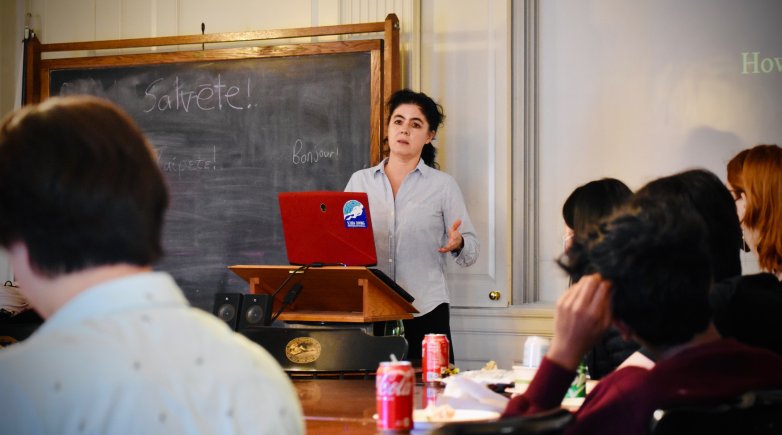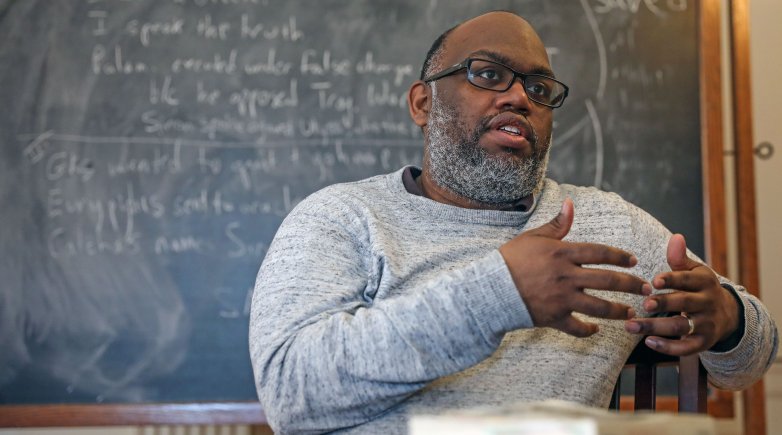Searching for shipwrecks
Underwater archaeologist brings ancient discoveries to life for Classics students.
Visiting scholar Dr. Bridget Buxton presents to students in the Latin Study.
Exeter’s young classicists got a comprehensive how-to last week from underwater archaeologist Dr. Bridget Buxton, who led a series of lunch seminars in the Latin Study of the Academy Building.
Buxton, an associate professor of ancient history and Mediterranean archaeology at the University of Rhode Island, specializes in classical underwater archaeology, and is a leader in the use of robotic technology in underwater research. A native of New Zealand, she has worked on expeditions in the Mediterranean, Adriatic and Black seas, and the South Pacific Ocean, and has discovered dozens of historic shipwrecks. In addition to the four lunch seminars, she also gave a lecture on April 20 in the Elizabeth Phillips Academy Center, in which she shared her experience as lead archaeologist on the most recent expedition to the RMS Titanic.
Titled “Adventures in Underwater Archaeology,” the series in Applied Classics was presented by the Classical Languages Department and made possible by the support of the Behr Fund. Buxton’s visit highlights the department’s mission to combine Exeter students’ in-depth study of Greek and Latin language and literature with exposure to other disciplines related to the Classics field, including history and archaeology.



